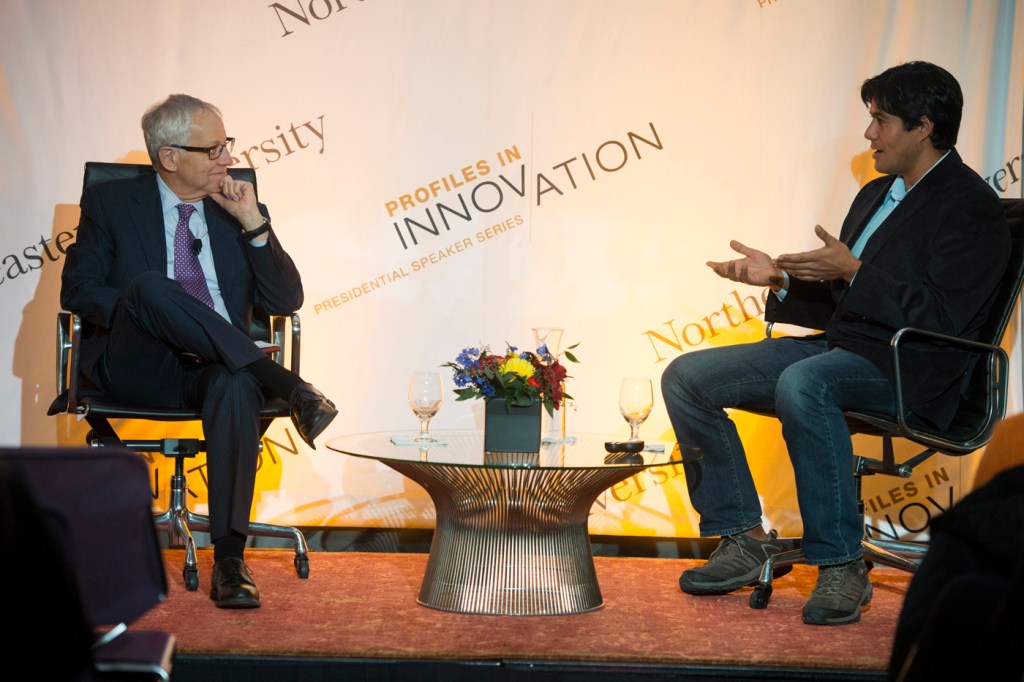The science behind your Netflix recommendations

More than eight out of 10 movies and TV shows Netflix users watch are based on the site’s recommendations. Those suggestions play an integral role in retaining customers and improving the user experience, according to Carlos Gomez Uribe, the man whose teams create the complex algorithms that help members find content that suits their individual tastes.
Netflix users are presented with rows of recommendations in various categories ranging from “Action and Adventure” and “TV dramas” to “Because you watched Arrested Development.” These algorithms, he said, order the entire catalog of Netflix content differently for every member’s profile. So even if two users have a row titled “Political thrillers,” the recommendations are likely to yield different results.
“Our algorithms have to be good enough to be able to compute all the recommendations and all the (previous viewing) experiences for these profiles, many of which use different devices,” said Gomez Uribe, vice president of product innovation at Netflix, who was the featured speaker Thursday afternoon in the latest installment of Northeastern’s Profiles in Innovation Presidential Speaker Series. “So the scale of this computation is pretty large.”
Following his talk, Gomez Uribe sat down for a Q&A led by Stephen W. Director, Northeastern’s provost and senior vice president for academic affairs. The Profiles in Innovation series is designed to bring the world’s most creative minds to campus for conversations on innovation and entrepreneurship. More than 150 students, faculty, and staff gathered in the Raytheon Amphitheater for Thursday’s event, as well as many others watching online and in an overflow room in the Egan Research Center.
Gomez Uribe noted that the process to develop recommendation algorithms boils down to scientific method, with a particular reliance on experimentation and advanced statistical and mathematical models. In his five years working at Netflix, consumer science has altered the company’s approach to recommendations, Gomez Uribe said. It was once based on the number of stars members gave to TV shows and films that they were mailed on DVD. Now, having greater emphasized streaming content online, Netflix is trying to optimize the recommendations algorithms based on the time of day and the day of the week users are viewing content as well as the specific devices they are using to view it. “This means we have to be much faster at calculating the recommendations, almost in real time,” he said.

Franciso Calderon, right, CIS’17, met Carlos Gomez Uribe, vice president of product innovation at Netflix. Photo by Brooks Canaday/Northeastern University.
A scientist and engineer turned product leader, Gomez Uribe has years of experience applying mathematical and statistical modeling techniques in various industries. Prior to Netflix, he worked at Google, McKinsey & Company, Merrill Lynch, and Analog Devices.
Netflix, which is the world’s leading Internet television network, currently has more than 57 million members in nearly 50 countries who watch more than 2 billion hours of TV shows and movies per month. Gomez Uribe said Netflix is constantly analyzing member activity in order to optimize the site’s interface and recommendations. Some ideas work well, others don’t. But as he put it, “We’re completely open with our practices. The only reason why we test is to improve the product for the consumers. We don’t sell this information to someone else. We only test to improve what you are paying to receive.”
During the Q&A, Director asked him what’s he’s learned about human nature from his job leading Netflix’s complex recommendations operation. In response, Gomez Uribe said that what people say they want and what they actually want can be very different. He shared an example from a couple years ago when new Netflix users were asked what would help create better recommendations for them. They said to ask what actors they like, but that approach did not yield strong results according to the data.
Gomez Uribe also fielded audience questions ranging from the particulars of Netflix’s recommendations algorithms to the importance of having a team that is diverse in skills as well as gender, race, and ethnicity.
“The way we think about it is that we seek to have as diverse points of view as we can to have a broad portfolio of innovations,” he said.
What does he binge watch on Netflix? He’s currently catching up on BBC America’s Orphan Black. Next up on his queue is the third season of the Netflix original series House of Cards, which premiered last weekend.
“Typically, I enjoy British murder mysteries,” he said.
Northeastern’s Profiles in Innovation series launched in 2011 and past speakers include inventor and engineer Robert Langer, flutist and arts entrepreneur Claire Chase, Boston Dynamics founder Marc Raibert, E’73, cell biologist Jeanne Lawrence, and IBM Watson creator David Ferrucci. In the previous installment earlier this week, Northeastern hosted Elmar Mock, co-inventor of the Swatch watch.





